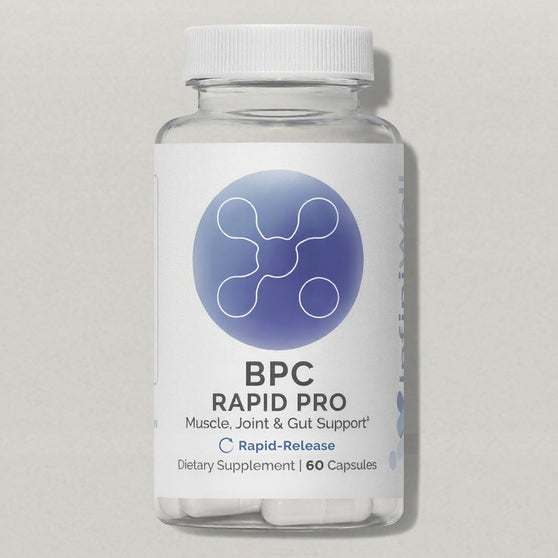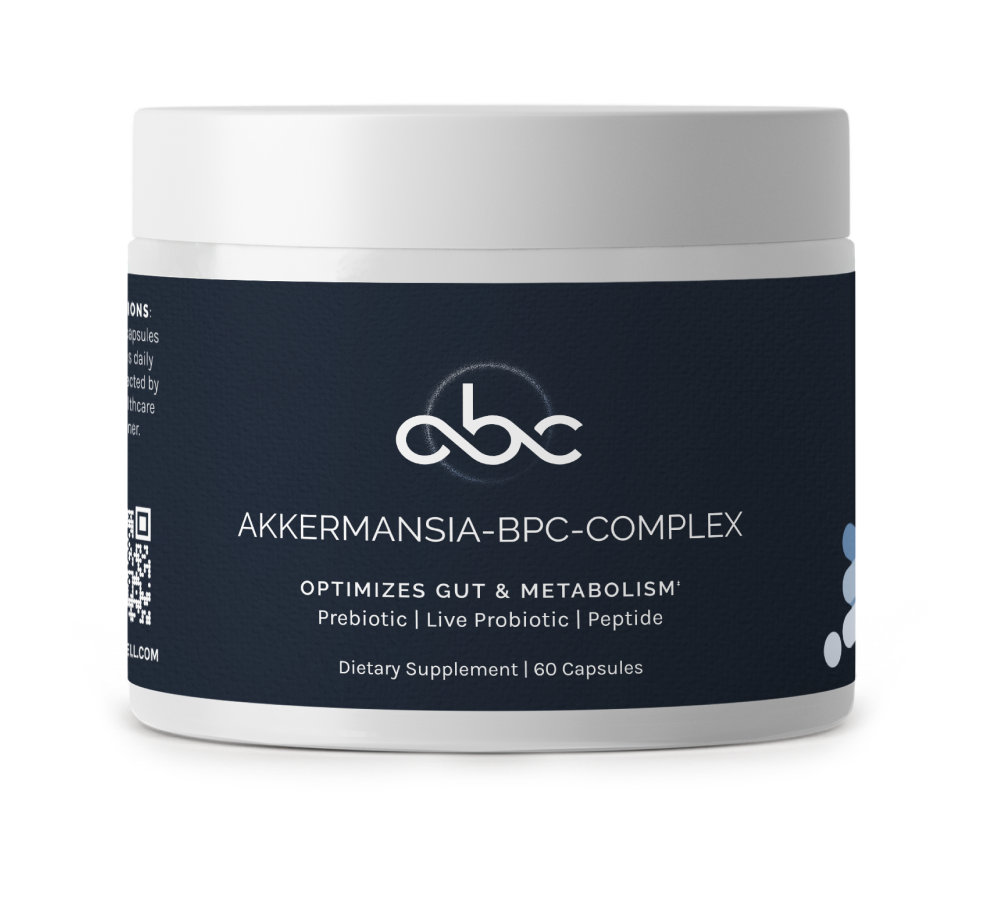Key takeaways
-
Peptides for wellness support energy, focus, and everyday function by working with your body’s natural systems, not against them.
-
Unlike short-term fixes, certain peptides may promote long-term balance by reinforcing functions like sleep, gut health, and brain signaling (the way brain cells communicate to manage focus, mood, and memory).
-
Peptides are available in various formats, making them easy to incorporate into busy routines without added complexity.
-
Some peptides, such as collagen peptides, are linked to benefits for skin, joints, and cognitive performance when used consistently over time.
-
Research continues to explore the gut-brain connection and how peptides like BPC-157 may support overall well-being during times of stress.
Between work, errands, and everything in between, self-care often takes a back seat. But what if there was a way to support your energy, focus, and recovery—without overcomplicating your routine?
If you’re new to peptides, here’s a quick primer: they’re short chains of amino acids that signal the body to carry out specific tasks, like tissue support, collagen production, or improved sleep quality. Some, like BPC-157, are known for supporting muscle and tissue resilience, while others, such as copper peptides, are linked to healthy levels of energy and skin radiance.
Peptides occur naturally in the body, but factors like stress, aging, and daily stressors can throw things off balance. Research peptides—lab-developed versions modeled after those naturally found in the body—are designed to support these built-in processes and help you keep up when life doesn’t slow down.
Why busy people are turning to peptides

Most people aren’t looking to overhaul their routine—they just want something that works. That’s one reason peptides are gaining traction. Instead of masking fatigue or stress with temporary fixes, they support the body’s natural processes to keep things running smoothly behind the scenes.
Here are a few reasons peptides are becoming a go-to for people who want real results:
1. Energy that lasts
Juggling work, workouts, and life outside of both takes energy—a lot of it.
Some peptides support how your cells produce and manage energy, helping maintain stamina through physical and mental demands. Mitochondrial peptides, for instance, play a role in balancing energy use and endurance at the cellular level.
That means steadier energy throughout the day. No caffeine spikes or sugar crashes.
2. Sharp focus, better rest
Mental fatigue can sneak up fast when you're constantly switching gears.
Some peptides are known for their potential effects on brain function, including those that may support communication between brain cells and promote cognitive resilience. Others are being explored for their ability to encourage more restful sleep—laying the groundwork for focus and mental clarity throughout the day.
3. Balance you can feel
When stress builds up, your body feels it. Digestion slows, hormone levels fluctuate, and even your mood can take a hit. That’s because your gut and brain are closely connected—what affects one often affects the other.
Peptides like BPC-157 support gut health, which can have ripple effects throughout the entire body, especially in times of stress.
4. Easy to fit into busy routines
Peptides aren’t one-size-fits-all, and that’s a good thing. From oral supplements to topical applications, they can be adapted to fit your preferences without adding to your to-do list. No long morning rituals, no complicated prep, just targeted support where you need it most.
5. Built for the long haul
Unlike quick fixes that wear off fast, peptides work by nudging your body toward better balance. For example, collagen peptides have been studied for their ability to support joint comfort, skin structure, and even sleep quality over time.
Rather than overriding your system, peptides reinforce what your body is already trying to do—sustainably.
Peptides: A smarter step toward daily wellness
Peptides aren’t a passing trend or another quick fix. By working with your body’s natural systems, they help you build lasting resilience, fueling steady energy, sharper focus, and a stronger sense of balance day after day.
For those with packed schedules and real demands, peptides offer a consistent, low-effort way to feel your best. Whether you're juggling meetings, managing a household, or fitting in fitness where you can, they’re a smart, science-backed addition to a modern wellness routine.
As with any new supplement, it’s a good idea to talk to your healthcare provider first, especially if you’re managing existing health conditions or taking other medications.
Terms to know
-
Peptides: Short strings of amino acids that act as messengers, directing the body to carry out specific functions like maintaining skin, tissue, or sleep health.
-
Research peptides: Lab-developed compounds modeled after naturally occurring peptides in the body, designed to support specific wellness functions.
-
Amino acids: The building blocks of proteins and peptides. They help form structures in the body and support many biological processes.
-
Collagen peptides: Peptides derived from collagen protein. Known for supporting skin structure, joint comfort, and connective tissue health.
-
BPC-157: A peptide linked to gut lining support, cell-to-cell communication, and physical resilience during periods of stress.
-
Brain signaling: The communication between brain cells (neurons) that helps manage focus, memory, mood, and sleep patterns.
-
Gut-brain connection: The two-way communication between the digestive system and the brain. A healthy gut may support clearer thinking and better stress response.
-
SOURCES





















